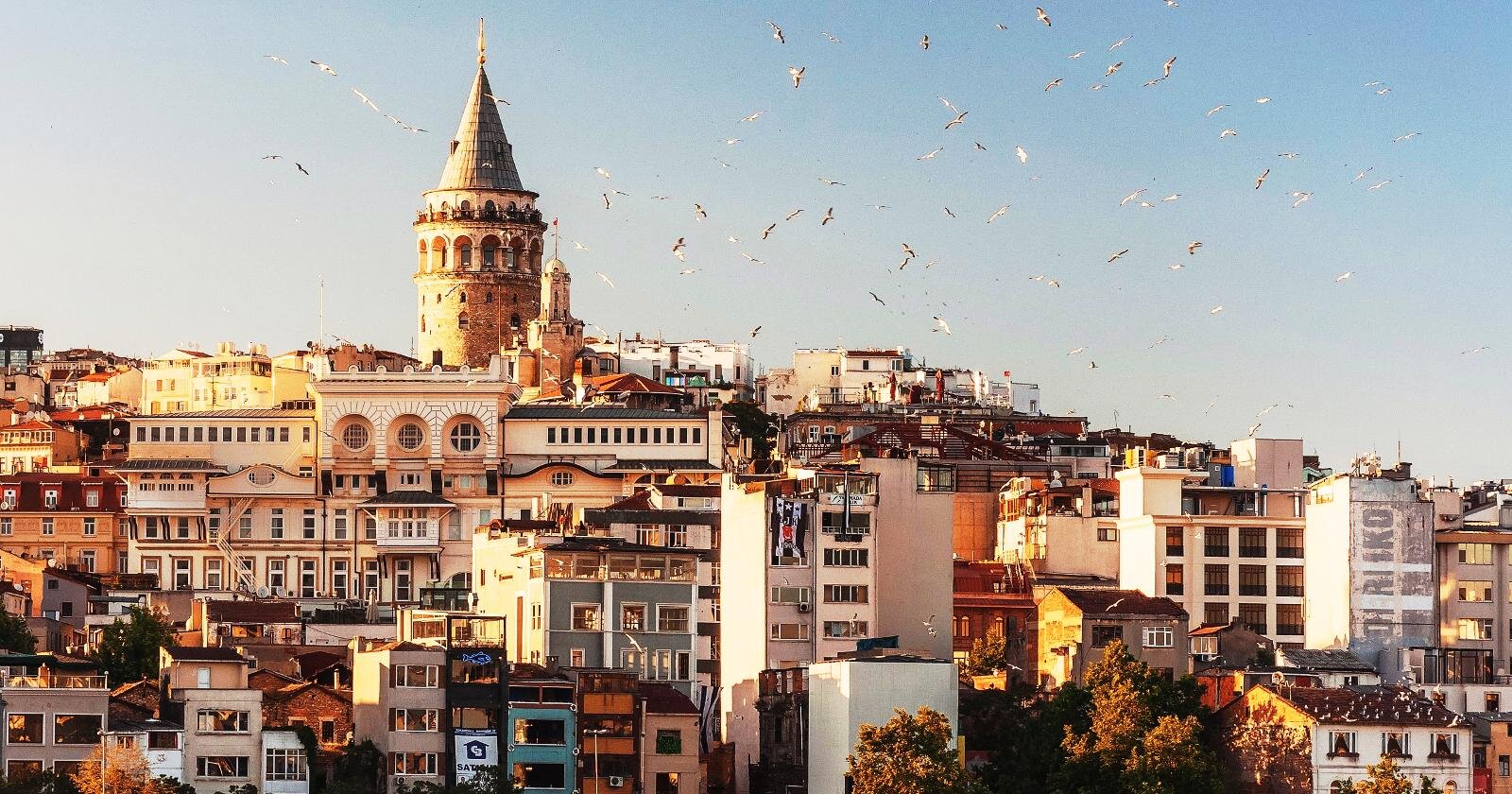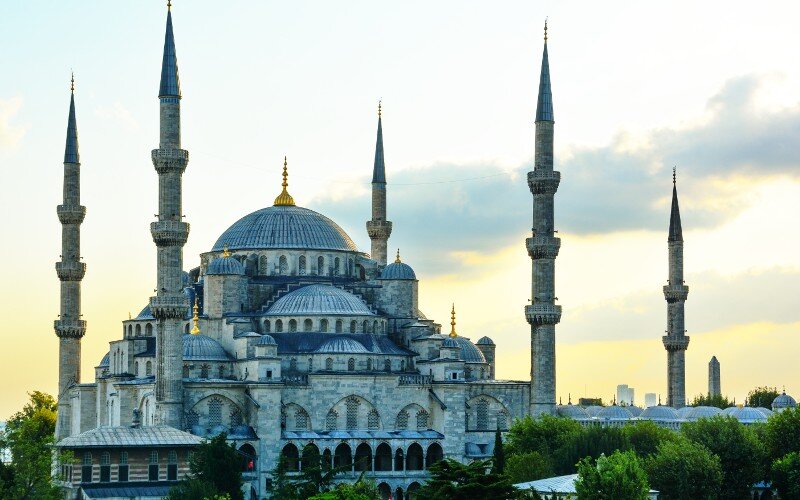KD Tours
ABOUT
KD Tourism & Travel, Istanbul based Destination Management Company, established in 1995 and has been serving its foreign clients with great satisfaction since. They provide providing incoming services throughout Turkey and work predominantly with American, Australian, South American, Indian, Dutch and Russian clients.
KD Tourism & Travel has vast experience especially in Guaranteed Departure itineraries such as Cultural Coach Tours, City Breaks, and Biblical Tours.
Also experienced on Battlefield Tours to Gallipoli, Culinary Tours, Contemporary Art and Biennial Tours for USA based art collectors, museums.
They are ready to adapt any changes regarding last-minute complicated requirements of their guests in English, Russian, Spanish and Italian

DESTINATION INFORMATION
Turkey is the 6th most popular travel destination in the world, welcoming more than 38 million visitors every year.
Besides the natural beauties and very rich cultural background of the country, each region offers different archeological, historical, religious sites to visit. They can offer our guests, Faith-Based Tours, Archaeological & Historical Tours, Battlefield Tours, Birding Tours, Adventure Programs, Contemporary Art Tours, Architectural Tours, Yachting Holidays & Gastronomic Tours in Turkey.”
MAPS
Click Map to download
Click here to request a quote from KD Tours
Request QuoteSAMPLE ITINERARIES
KD Tours Private Sample Program
Turquoise Coast
Aegean & Istanbul Tour
Seven Churches of the Revelation
Turkey in a Nutshell
City Break Antalya
Highlights of Turkey
Treasures of Turkey
Gulet/Blue Voyage
City Break Istanbul
Cappadocia Tour
City Break Izmir & Kusadasi
City Break Cappadocia
UNIQUE & SPECIAL EXPERIENCES
Ballooning Tour
A balloon ride is the most impressive way of watching the unique beauty of the region. By slowly sailing in the sky for an hour you will be able to see the most distant and striking spots of Cappadocia those cannot be reached on foot. This will also provide great opportunities for our photography-enthusiast guests.
Gastronomy Tour of Istanbul
Immerse yourself with our uniquely designed Gastronomy Tour of Istanbul. Experience the local culture, the bustling market place with a private tours filled with authentic Turkish cuisine.
Two Quarters, Two Continents, a world of experiences.
Scuba Diving
There are over 20 diving sites in the area with 2 canyons, 3 caves, 4 wrecks with one of them is WWII plane, 3 walls and lots of reefs with lively sea life. The number of choices also provides lots of diving opportunities to all level divers. Diving to the wrecks is regulated by the coast guard. They might be closed by coast guard without any notice. Although they are all opened at the moment, there is a small possibility for them to be closed.
Enjoy a Personal Gallipoli Visit with a Historian
Enjoys a tour of battlefields from the Turkish side, with expert Turkish historian and guide Prof. Kenan Celik, OAM, MA.
Prof. Kenan Celik is one of Turkey's leading experts on the Gallipoli Campaign of World War One, has been a guide to the battle- fields of the Gallipoli Peninsula for more than 25 years. In 2000, Kenan was awarded the Order of Australia, that country’s highest civil honour, by the Australian government in recognition of his services to Australian history, becoming the first Turkish citizen to receive this award.
DESTINATION SHOWCASE

Pamukkale
Pamukkale, meaning “cotton castle” in Turkish, is an unreal landscape in western Turkey, famous for its white terraces. The terraces are made of travertine, a sedimentary rock deposited by water with a very high mineral content from the hot springs. People have bathed in its pools for thousands of years. The ancient Greek city of Hierapolis was built on top of the hot springs by the kings of Pergamon. The ruins of the baths, temples and other Greek monuments can be seen at the site.

Bodrum Castle
Located in the city of Bodrum in southwest Turkey, Bodrum Castle was built by the Crusaders in the 15th century as the Castle of St. Peter. It is one of the world’s best preserved monuments dating back to medieval times. The castle now operates as a museum, with the focus on the Museum of Underwater Archaeology. It overlooks the internal marina of Bodrum filled with millions of dollars worth of sailing crafts.

Mount Nemrut
Nemrut is a 2,134 meter (7,001 ft) high mountain in southeastern Turkey, near the city of Adiyaman. In 62 BC, King Antiochus I Theos of Commagene built a tomb-sanctuary flanked by huge statues of himself, two lions, two eagles and various Greek, and Persian gods on the mountain top. Since their construction, the heads have toppled from the bodies and lay scattered throughout the site. The summit of Mount Nemrut provides a great view of the surrounding mountains. The main attraction is to watch the sunrise from the eastern terrace which give the bodyless heads a beautiful orange hue and adds to the sense of mystery of the place.

Olüdeniz
Ölüdeniz is a small village located on the south west coast on the Aegean Sea. It has a secluded sandy bay at the mouth of Ölüdeniz, on a blue lagoon. This beach is famous for its shades of turquoise and remains one of the most photographed beaches on the Mediterranean. Ölüdeniz is also regarded as one of the best places in the world to paraglide due to its unique panoramic views.

Library of Celsus
The ruins of Ephesus are a popular tourist attraction on the west coast. The city of Ephesus was once famed for the Temple of Artemis, one of the seven wonders of the ancient world, which was destroyed by a mob led by the archbishop of Constantinople in 401 AD. Some of the structures can still be seen however including the Great Theatre and the Library of Celsus. The library was built around 125 AD to store 12,000 scrolls and to serve as a monumental tomb for Celsus, the governor of Asia. The façade was carefully reconstructed in the 1970s to its present splendid state from the original pieces.

Göreme Fairy Chimneys
Cappadocia is famous for its weird and wonderful natural rock formations and unique historical heritage. One of the best places to see these strange formations is the town of Göreme, which is located among a large number of tuff cones, termed fairy chimneys. The fairy chimneys have been formed as the result of wind and water erosion of two different volcanic layers: A thick layer of tuff (consolidated volcanic ash) covered by a thin layer of basalt that is more resistant to erosion. Due to the ease of carving into the tuff, many of the fairy chimneys at Cappadocia have been hollowed out over the centuries to create houses, churches and storage facilities.

Hagia Sophia
Located in Istanbul, the Hagia Sophia was originally a basilica constructed for the Eastern Roman Emperor Justinian I in the sixth century. A masterwork of Roman engineering, the massive dome (31 meters or 102 feet in diameter) covers what was for over 1000 years the largest enclosed space in the world. The church was looted by the fourth Crusaders in 1204, and became a mosque in the 15th century when The Ottomans conquered the city. The Hagia Sophia was converted into a museum in 1935 and is now one of the top attractions in Turkey.

Aspendos Theatre
Aspendos boasts one of the best preserved ancient theatres of antiquity. The theatre of Aspendos was build in 155 AD during the rule of the Roman Emperor Marcus Aurelius and could seat between 15,000 and 20,000 spectators. Because the stage area was later used as a caravanserai (a roadside inn) in Seljuk times, it was continuously repaired and maintained. Thus, the Aspendos Theatre has been able to survive to this days without losing almost any of its original qualities.

Gallipoli
The Gallipoli Peninsula is historically famous for being the site of many battles - particularly involving the Allied Forces including Australians and New Zealanders during World War I. The World War I battlefields of Gallipoli are now a serene site.
LOCAL WEATHER
TURKEY
Turkey is geographically divided into 7 regions. Each of these regions has microclimates. The areas along the coastline are hot and humid in summers, cold and damp in winters. It snows around the Sea of Marmara. Central and eastern Turkey has a continental climate. Summers are hot and dry and winters, especially on the East, are severe.





















